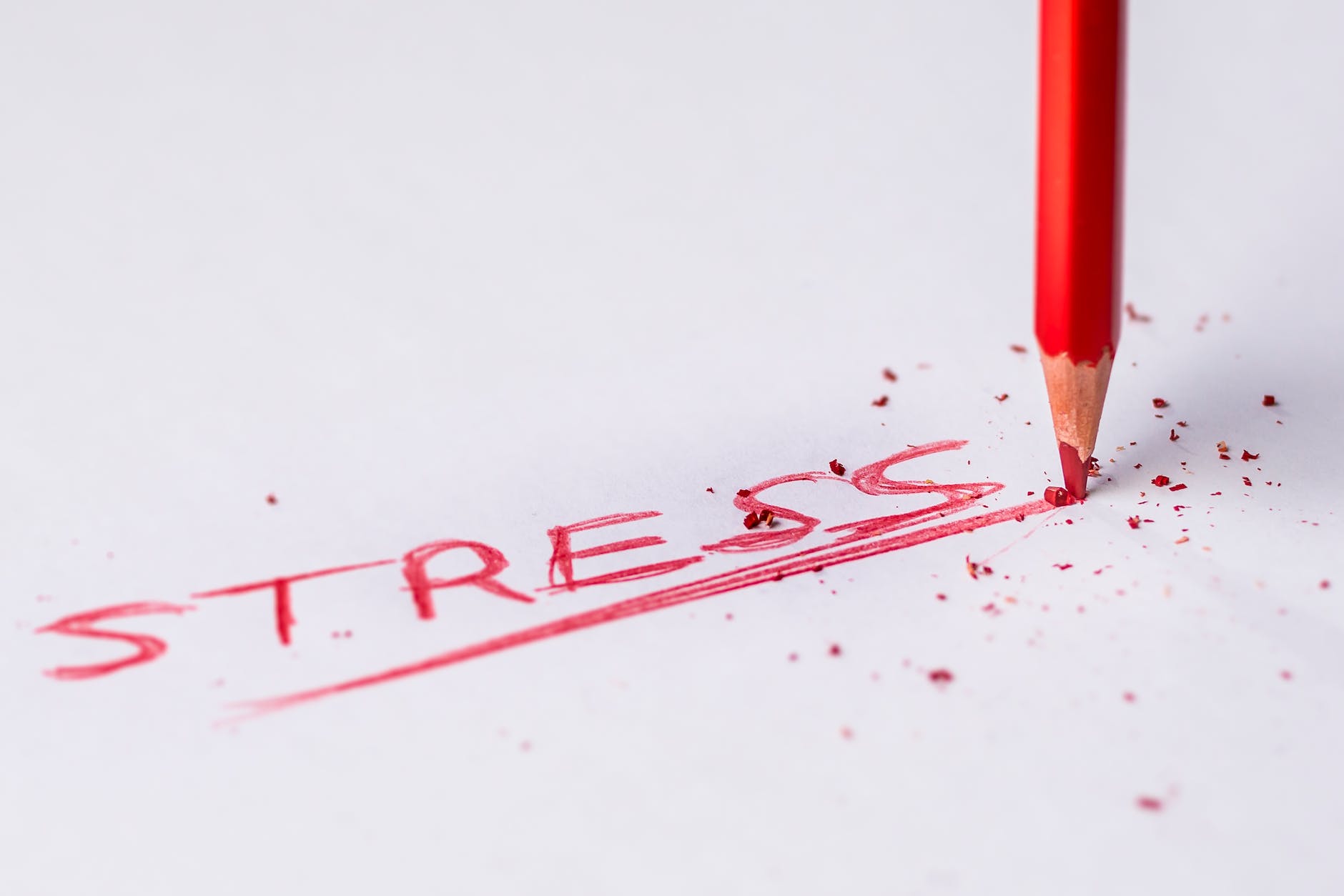It’s Stress Awareness Month, and we here at MINES & Associates are reflecting a lot upon stress and the insidious ways in which it shows up in our lives.
Stress is normal – and in many ways, unpreventable. We will all feel stressed at some point in our lives. And while this may be true, that doesn’t mean that we should do nothing and let stress build up until it becomes unmanageable.
To kick off Stress Awareness Month, let’s take a deep dive into what, exactly, stress is, the truth behind the fight-flight-freeze-fawn response, and what the research says about lowering your stress levels. Mines & Associates offers mindfulness programs that can help with stress.
What is stress?
We mostly talk about stress as a negative thing – we might be worried about the health impacts of stress or try to manage our stress in healthy ways. In reality, stress isn’t always a negative thing – but it can definitely have negative impacts, especially when it becomes chronic.
Stress is the body’s natural response to challenges. Humans feel stress when they are faced with something that feels difficult. For example, you might feel stress when you’re on a time crunch for a work project or before you go on a first date. Some physical experiences, like going through surgery, may automatically cause your body to respond with stress. Exploring our mindfulness programs can also help with the body’s natural response to stress.
The stress response is started by your autonomic nervous system – specifically by your sympathetic nervous system. When you’re faced with a challenging situation, your nervous system kicks in the stress response, which causes important changes in your body. Some of these change include:
- Your heart beats faster and harder to get more blood flow to your muscles and limbs
- You start breathing faster
- Certain hormones like adrenaline and cortisol are released
- Your blood vessels constrict
- Your muscles contract to get ready to move or fight
- Your immune system is suppressed (as this isn’t necessary for immediate survival)
- Other bodily functions that aren’t necessary for immediate survival, like digestion and reproductive functions, are suppressed
Evolutionarily, these changes that happen during stress helped humans to overcome challenges. For example, when faced with a predator, we may have needed more blood flow to our muscles in order to either fight the predator off or run away from it.
Even today, stress helps us to get through challenges. For example, the hormones released during the stress response might give us enough energy to meet a tight deadline.
The health consequences of chronic stress
So stress, in and of itself, isn’t necessarily a bad thing. The problem arises when stress becomes long-term, or chronic. Our bodies aren’t designed to have the stress response activated all the time. And research has linked chronic stress to many health consequences, including:
- High blood pressure
- Other cardiovascular problems like increased risk of stroke and heart failure
- Weakened immune system
- Gastrointestinal problems like stomach ulcers, acid reflux, and irritable bowel syndrome
- Chronic pain and muscle tension
- Weight gain and obesity
- Problems sleeping
- Substance abuse
- Increased risk of mental health conditions like depression and anxiety
What is the fight/flight/freeze/fawn response?
You might have heard of “fight or flight,” which is another way to describe having your stress response activated. When you’re under stress, you can’t make responsible or healthy decisions. Historically, our ancestors may have felt the need to fight – go on the offensive and beat the predator or stressor – or flee (flight) – run away from the stressor.
We now know that fight and flight aren’t the only two stress responses. Some people freeze when they’re under stress. They may feel so frightened that they aren’t able to act at all.
More recently, experts have defined a fourth type of stress response – fawn. Some people may try to appease the “predator” as a way to cope with it.
The fight/flight/freeze/fawn response comes up when we’re under acute stress. For example, if we are being yelled at by a boss, a child jumps out in front of our car, our fight/flight/freeze/fawn response might kick in. This response is often automatic – we may not be able to make reasonable decisions while we’re in fight/flight/freeze/fawn. Be sure to contact Mines & Associates to learn about our mindfulness programs to address these types of response.
Here are some examples of what the fight/flight/freeze/fawn response could look like in today’s world.
Examples of the fight response
- Becoming aggressive or argumentative
- Getting into fights with loved ones
- Getting road rage
- Raising your voice instead of calmly talking it out
- Making threats
- Insulting others
- Becoming confrontational
- Having an emotional outbursts
- Directly confronting the stressor (such as fighting off a barking dog)
Examples of the flight response
- Avoiding confrontation
- Calling in “sick” to avoid dealing with something stressful
- Quitting your job when you feel stressed
- Leaving a relationship
- Ignoring emails and calls
- Fleeing dangerous places to ensure their safety
- Walking away from difficult conversations
- Delegating tasks that they feel are “too much” for them
Examples of the freeze response
- Deciding to say nothing rather than speak up
- Postponing important decisions or allowing others to make them for you
- Feeling physically immobilized when confronted with a danger (like a barking dog)
- Becoming completely quiet and numb during confrontation
- Zoning out during difficult conversations
- Feeling frozen and incompetent when responsible for difficult tasks
- Staying frozen and doing nothing after a trauma (like a car accident) rather than seeking medical care or taking action
- Allowing important deadlines to pass because they have procrastinated
Examples of the fawn response
- Bringing your boss coffee after they have given you negative feedback
- Working extra hard to make your boss happy when you feel that they are upset with you
- Complimenting or being extra sweet toward your partner when you are having an argument
- Taking on extra work to be seen as a team player.
- Over-apologizing for things that aren’t your fault
- Putting others’ needs above your own
- Trying to act subservient to appease someone you find dangerous or threatening
- Verbally agreeing with someone even if you don’t truly agree with them
Every person has a different response to stress, and you may not fit neatly into one of these categories. The important thing is to recognize when you’re acting out of your stress response and to find ways to manage stress in healthier ways.
How to effectively manage your stress levels
Again – stress, in itself, isn’t a bad thing. But if your stress levels begin to get too high, or if you notice that you’re under stress more often than not, then it’s important to take action and find ways to feel more relaxed.
Different stress management techniques work for different people. For example, some people may like to listen to music, while others may enjoy talking with their friends. But try to remember that stress is an automatic biological response. So a large part of managing your stress effectively has to do with dealing with it on that biological level. Our mindfulness programs can help manage stress as well – be sure to contact our team to learn more.
Here are some evidence-based ways to bring stress down.
Diaphragmatic or deep breathing
One of the biggest changes that happens in your body when your stress response is activated is that your breathing becomes faster and more shallow. You can counteract this by regularly practicing deep or diaphragmatic breathing techniques. This directly calms your stress response by activating the parasympathetic nervous system and letting your body know it’s okay to relax.
One popular breathing technique is the 4-7-8 breathing exercise. First, breathe in for 4 counts through your nose. Get the air deep into the bottom of your belly. Then, hold your breath in for 7 counts, and finally, release the air slowly for 8 counts.
Progressive muscle relaxation
Progressive muscle relaxation, or PMR, is another effective way to kick your parasympathetic nervous system into gear. It’s also a way to relieve muscle tension that often comes along with stress. There is a large body of evidence that suggests PMR is very effective for lowering stress levels.
To practice PMR, find a comfortable seated or lying down position. Starting at the top of your head, tense and then release groups of muscles. First, you might tense all of the muscles in your face. Squeeze your eyes shut, clench your jaw, and crunch your nose with as much strength as you can without causing yourself pain. After several seconds, release all of the tension. Breathe in and out.
Work your way down your body, tensing and then relaxing each muscle group – your neck and shoulders, arms, abdomen, and so on.
Get into nature
Have you noticed that you feel more relaxed when you’re near an ocean or another body of water? Or perhaps in the middle of a quiet forest? There is actually research behind this – studies have found that people who spend more time in nature are less likely to be stressed and anxious.
Spend as much time as you can outdoors. If you don’t have a large natural space where you live, try to at least go for walks outside and pay close attention to the natural sights, sounds, and smells that you experience.
Prevent stress build-up
On top of these ways to calm your stress response when it’s already activated, you can also learn how to manage stressors (things that cause you stress) so that your stress levels never become chronic to begin with. For example, many people work on learning how to manage their time so that they don’t become overwhelmed with tasks. You might practice mindfulness to become more conscious of the signs that you’re under high stress.
Living a healthy lifestyle by sleeping well, eating nutritious meals, and exercising regularly can also be helpful.
Seek professional support
Working with a counselor can also give you new tools to manage stress in healthy ways. With your MINES & Associates Employee Assistance Program, you have access to 24/7 free and confidential counseling. Whether you’re buried under chronic stress or simply want to learn ways to manage it before it gets out of control, give us a call to learn about our mindfulness programs.
To Your Wellbeing,
The MINES Team












Leave A Comment